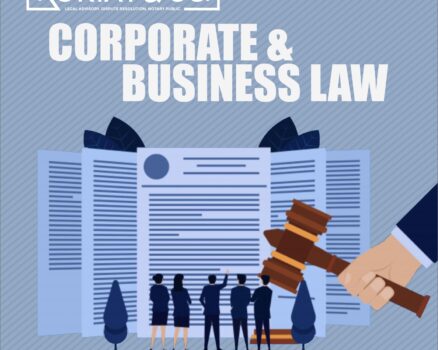Social media is an essential part of the human space. Social media establishes the user’s online identity. A lot is happening on social media and human resource managers and, indeed, business owners cannot disregard the impact of online activities on their business or service. For example, recently, there was a “banks war” in Nigeria on social media, which was instigated by a bank’s staff member, and few other banks had joined in the online war before the Central Bank of Nigeria called them all to order.
It is therefore important for every company to have a well-articulated social media policy as part of the conditions of service to which its employees should agree. A company’s social media policies should have regard for the extant laws and regulations, for example, the Cyber Crime Act, 2015, the Copyright Act and other laws creating civil rights and obligations especially with regard to privacy, security, reputation, etc., of Nigerians.
It is also important for job applicants and employees to appreciate that whatever they post online may have bearing on whether or not they get hired or retained on a job. Interestingly, because of time constraints and the huge costs of conducting background checks, some recruiters or employers do have recourse to social media pages of those seeking employment or working for them to get a sense of who the applicants or workers really are from their social media posts. So, it is important that you vet it before you post it!
It is now trite that every company needs to set social media policy for its workers. The policy may cover the use of technology generally but specific matters on the use of social media in particular need to be expressly laid out for mutual understanding of the employer and the employees from the onset.
Few of those aspects are as follows:
Account Name, Login and Password: For consistency with a business’ corporate brand, it is useful for the company and employees to have understanding on what the social media account name should be and a proper record of the login and password details should be maintained. This is very important especially if the other staff members are required to post business information or other contents on the social media account in the absence of the main handler.
Roles and Responsibilities: To ensure effectiveness and accountability in the use of social media activities, the roles and responsibilities of each handler should be clearly defined.
Disclosure and Confidentiality of information: It is admitted that most of current employee handbooks contain provisions regarding the unauthorized use or disclosure of confidential information about the employer’s business. Such provisions, however, are usually in a broad sense. It is now important that an employee’s handbook should contain express provisions on the use and limitations regarding employees’ disclosure and other activities on social media.
Ownership of Social Media Account: Before now, employers have had a broad provision in handbook regarding the assets of the company in the possession and use of the employees. Little or no attention has been paid to social media accounts of the employees. Some organizations in Nigeria do not appreciate the value of a social media account and, so, do not list it as part of the assets that must be surrendered to the company upon an employee’s disengagement from the employment relationship. Times have changed. There are now so many reasons why employees’ social media accounts ought to be specifically negotiated and agreed during engagement as the company’s assets, especially for players in the marketing industry and specific businesses, which thrive on social media traffic.
Other unofficial social media accounts: It is important for employment contract to include provisions, which permit or restrict an employee from owning or operating a parallel social media accounts within the period of his or her employment. In the light of Section 254C of the 1999 Constitution (as amended), it may be difficult for an employer to penalize a worker or terminate any employment as a result from the employee’s activities on other social media unless there is an express prohibition in the contract of employment. It is not clear, however, whether a company can rightly prohibit a worker from operating an unofficial account on a social media platform which the employers do not have any account.
Product pricing or service related communication: It is important for a company with a pricing strategy to ensure that all the employees understand who has or does not have the company’s mandate to negotiate with its prospective clients or make any official communication that has the potential to bind the company to a third party. Such rules should extend to any official or similar communication on social media.
Surrender of Social Media Account: A worker should guarantee the employer’s unrestricted access to the social media account at the time in the course of employment or upon disengagement from the employment relationship. Password of the social media account should only be changed with the permission of the company or the HR or line manager. Change of password and the new password should be communicated to the company management within a prescribed period and record should be kept of all such changes.



